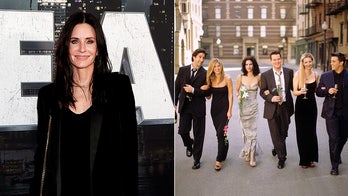Hollywood veteran Michael Douglas has expressed his reservations regarding the growing prevalence of intimacy coordinators on film sets. In a recent interview, Douglas argued that intimacy coordinators undermine the creative process and suggested that filmmakers in the past were capable of handling intimate scenes responsibly.

Michael Douglas, the iconic actor known for his roles in "Fatal Attraction" and "Ant-Man," has joined the growing chorus of voices critical of intimacy coordinators on film sets. In a candid interview with Radio Times, Douglas shared his concerns about the impact of intimacy coordinators on the filmmaking process, claiming that they empower executives at the expense of filmmakers.
"I'm past the age where I've got to worry about that," Douglas said. "But it's interesting with all the intimacy coordinators. It feels like executives taking control away from filmmakers – but there have been some terrible faux pas and harassment."

Douglas's comments echo those of other prominent Hollywood figures who have expressed skepticism about the role of intimacy coordinators. Ewan McGregor has previously acknowledged the importance of intimacy coordinators for ensuring the safety and comfort of actors, while Toni Collette has voiced concerns that their presence can create an unnecessary sense of anxiety.
According to Douglas, the responsibility of ensuring a comfortable and respectful environment during intimate scenes should fall on the actors themselves. He recalled his own experience filming explicit scenes, emphasizing the importance of open communication and consent.

"It was my responsibility as the man to make sure the woman is comfortable," Douglas explained. "I'd talk through each step of the scene together. We'd make sure all my actions were okay with them."
Douglas believes that the introduction of intimacy coordinators is a symptom of a broader shift in the film industry, where executives are increasingly dictating the creative process. He suggested that in the past, actors and filmmakers were able to handle intimate scenes with sensitivity and discretion without the need for external supervision.
"I'm sure there were people that overstepped their boundaries, but before, we seemed to take care of that ourselves," Douglas said. "They would get a reputation and that would take care of them."
Douglas's comments have sparked a debate within the entertainment industry, with some supporting his view that intimacy coordinators are unnecessary and others arguing that they provide a valuable safeguard against potential misconduct. As the conversation continues, it is important to consider the perspectives of all stakeholders involved to ensure that the safety and comfort of actors are prioritized while preserving the artistic integrity of filmmaking.










